Modern Catholic Theology Collection (5 vols.)
Digital Logos Edition
Overview
The Modern Catholic Theology Collection (5 vols.) provides an in-depth look at how Catholic theology has evolved. Analyzing the theology of Hans Urs von Balthasar, Maurice Blondel, Joseph Ratzinger (now Pope Benedict XVI), Henri de Lubac, and others, this collection brings you the best in twentieth-century Catholic theology and philosophy.
The collection studies topics like divine love, moral experience, the future of biblical interpretation, and the supernatural. Drawing on the riches of the Church’s 2,000-year tradition, the Modern Catholic Theology Collection (5 vols.) brings new insight to Catholic thought.
With the Logos Bible Software edition, every word is essentially a link, helping you search the entire collection for a particular verse or topic. For example, you can search for every instance of the phrase “divine love” or “moral theology.” This gives you instant access to a wealth of information on twentieth-century Catholic theology.
- Insights to the philosophy and theology from some of the biggest figures in twentieth-century Catholicism
- Recent and essential scholarship on modern Catholic theology
- Title: Modern Catholic Theology Collection
- Publisher: Eerdmans
- Volumes: 5
- Pages: 1,716
- The Epiphany of Love: Toward a Theological Understanding of Christian Action
- Love Alone Is Credible: Hans Urs Von Balthasar as Interpreter of the Catholic Tradition
- Maurice Blondel: A Philosophical Life
- Opening Up the Scriptures: Joseph Ratzinger and the Foundations of Biblical Interpretation
- The Suspended Middle: Henri de Lubac and the Debate Concerning the Supernatural
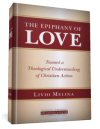
In this volume Livio Melina attempts to overcome the deadlock in which moral theology can easily find itself due to the false alternative between moralism, with its emphasis on external rules, and antimoralism, with its insistence on freedom from all norms.
The key, Melina argues here, is not to regard morality as a simple list of principles directing our choices and helping us to make correct moral judgments. Rather, we must step back and begin to comprehend the dynamic mystery of Christian action. Only in the light of Christ can the proper correlation between faith and morality, freedom and truth, be clearly understood. True morality springs from a synergistic relationship with God, born of faith in Christ, nurtured in the church, and made manifest in that which inspires all authentic goodness—the epiphany of love.
Livio Melina is the worldwide president of the Pontifical John Paul II Institute for Studies on Marriage and Family, Rome, where he also serves as Professor of Fundamental Moral Theology.
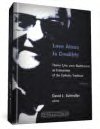
In this volume, David L. Schindler presents readers with a collection of essays garnered from the 2005 conference marking the centenary of Hans Urs von Balthasar‘s birth. That conference hosted an international gathering of scholars, among them students, colleagues, friends, and critics of Balthasar, all making an effort to engage the fundamental questions of faith and reason in light of his influential contribution to Catholic theology.
A wide range of topics are explored in light of the Christian mystery, including metaphysics and causality, the nature of rationality, the relationship between God and the world, and the meaning of the body. Featuring an impressive list of contributors, Love Alone Is Credible is a tribute to the profound relevance of Balthasar‘s thought.
David L. Schindler is provost and dean of the Pontifical John Paul II Institute for Studies on Marriage and Family at the Catholic University of America, Washington, D.C. He is also the editor of Communio: International Catholic Review (Anglo-American edition) and the author of Heart of the World, Center of the Church.
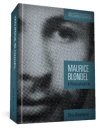
French philosopher Maurice Blondel (1861–1949) had a tremendous impact on both philosophy and religion in the twentieth century. He was at once a postmodern critical philosopher and a devout traditional Catholic who strove to keep these two sides of his life in unison, neither separating nor confusing them.
In this first-ever critical examination of Blondel’s entire life and work, Oliva Blanchette tells of Blondel’s stormy confrontations with an academy dismissive of religion and a religion uncomfortable with rational philosophy. The book recounts both Blondel’s biographical history and his systematic philosophy in meticulous detail.
Here, at last, is the standard reference book on Maurice Blondel's philosophy that we have been desperately waiting for. Absolutely clear and accessible even to nonconnoisseurs, this book succeeds in showing how much Blondel's thought is the conceptual reflection of his deep spiritual experience. Written by a real metaphysician, this masterpiece embraces for the first time the wholeness of Blondel's thorough intentions, from the very first notes to the final texts. Maurice Blondel: A Philosophical Life is, indeed, an event. There will be henceforth a "before" and an "after" Oliva Blanchette's book, which will delight not only Blondelian researchers but also the entire philosophical community.
—Emmanuel Tourpe, Institut d'Etudes Théologiques
Oliva Blanchette is Professor of Philosophy at Boston College. His other books include the award-winning Philosophy of Being: A Reconstructive Essay in Metaphysics and The Perfection of the Universe according to Aquinas.
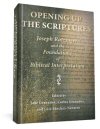
Opening Up the Scriptures was written by a group of eminent Catholics, including Joseph Cardinal Ratzinger—now Pope Benedict XVI. In these erudite essays the authors contend that historical-critical interpretation of Scripture has long since run its course in both Protestant and Catholic exegesis. Instead, they argue, the future of interpretation lies in accepting that the Bible is not just a collection of historical documents but also a record of revelation conceived in faith. By this token, true exegesis involves the faith and humility of the exegete.
José Granados is Assistant Professor of Theology at the John Paul II Institute for Studies on Marriage and Family at the Catholic University of America.
Carlos Granados holds a doctorate in Sacred Scripture from the Pontifical Biblical Institute in Rome.
Luis Sanchez-Navarro is Professor of New Testament studies at the San Damaso Theological School in Madrid.
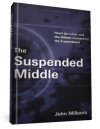
French Jesuit Henri de Lubac (1896–1991) was arguably the most revolutionary theologian of the twentieth century. He proposed that Western theology since the early modern period had lost sight of the key to integrating faith and reason—the truth that all human beings are naturally oriented toward the supernatural.
In this vital book John Milbank defends de Lubac’s claim and pushes it to a more radical extreme. The Suspended Middle shows how such a claim entails a "non-ontology" suspended between rational philosophy and revealed theology, interweaving the two while denying them any pure autonomy from each other.
As de Lubac’s writings on the supernatural implicitly dismantled the reigning Catholic (and perhaps Protestant) assumptions about Christian intellectual reflection, he met with opposition and even papal censure. Milbank’s sophisticated account of de Lubac delineates the French theologian’s relations with other proponents of the nouvelle théologie, such as Hans Urs von Balthasar, and clarifies the subtle but crucial divisions within recent Roman Catholic theology.
The most substantial treatment in English of de Lubac’s as yet untranslated Surnaturel and the subsequent debate, Milbank’s Suspended Middle lays down an energetic challenge that every serious student of theology and Christian philosophy will want to engage.
An encounter of two true authors is not very frequent in theology today, but it is just such a privileged moment that the reading of this little book offers. While it introduces the reader to the work of Henri de Lubac, The Suspended Middle also introduces some key themes of John Milbank's thought. How should we think about the paradox of the supernatural? How is grace able to remain a free gift, while it seems required by spiritual creatures as their necessary accomplishment? Milbank does not content himself with comparing—albeit magisterially—the response of de Lubac with the principal theological positions of the past century on this question. He also deepens it. . . . Readers will be kept in suspense from one end of the book to the other by the theological spirit intensely present in each sentence.
—Olivier-Thomas Venard, Coauthor, Radical Orthodoxy
Henri de Lubac is a difficult theologian: as a major historian of Latin theology, he is a master in the art of concealing his own theology behind the erudite discussion of past and present works. It is not the smallest merit of John Milbank's book, therefore, to prove that de Lubac is more a theologian than a historian of theology. . . . Milbank's provocative book manages to make [de Lubac's theology] relevant for modernity as well as for postmodernity. This is probably the most exciting book ever written on de Lubac.
—Jean-Yves Lacoste, Author, Experience and the Absolute
John Milbank is Research Professor of Religion, Politics, and Ethics at the University of Nottingham, England, and Director of the Centre of Theology and Philosophy. His previous books include Theology and Social Theory, The Word Made Strange, Radical Orthodoxy (coeditor), and Being Reconciled.